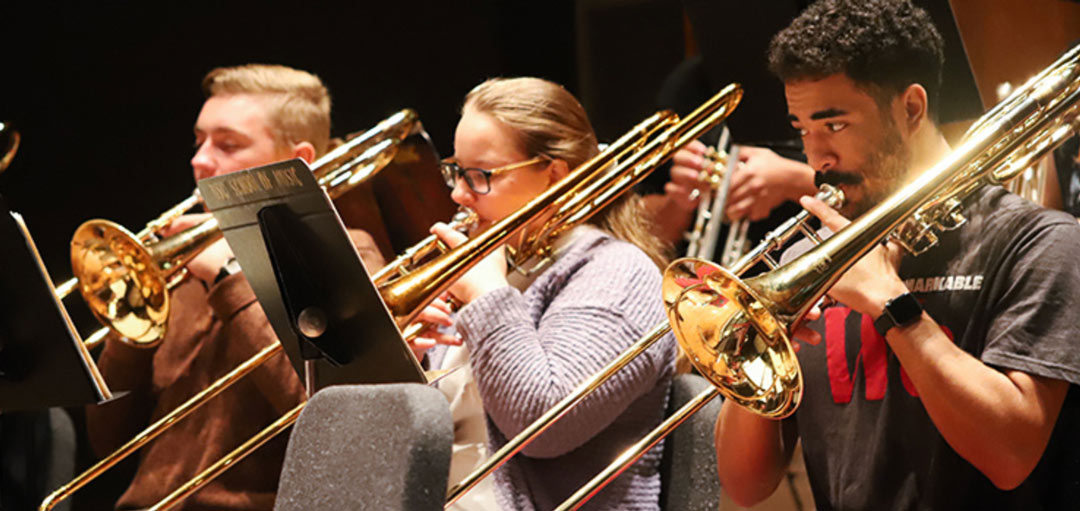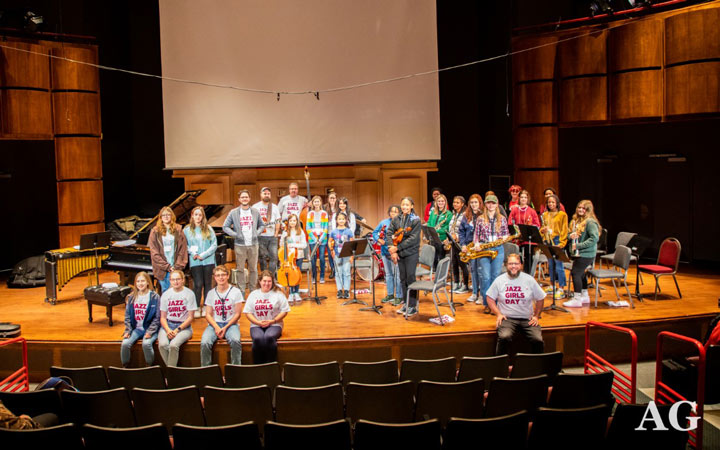A recent initiative from the USC’s School of Music is resulting in a new and rapidly growing jazz program. (Photo courtesy of the USC School of Music)
USC’s School of Music is tapping into the state’s history and rich culture to provide a new, one-of-a-kind jazz education.
But the revamped curriculum doesn’t just address jazz.
It includes influences from Gullah music, Afro-Cuban and Brazilian music, funk and contemporary American music.
It’s important to broaden the school’s jazz offerings because of the state’s role in the history of jazz music, according to one of the academicians leading the change.
“African rhythms, the blues, swing, all these things are elements of jazz,” said Dr. Colleen Clark, an assistant professor at the University of South Carolina.
Jazz was born out of the slave trade, and major port cities, such as Charleston, hold a wealth of information, heritage and talent.
“Our music has this really special relationship with this country,” Clark said. “Without the ugly parts of what our country went through, we wouldn’t have this music. That’s why it’s so important for people to know about jazz, and where it came from and where it’s going.”
The change is meaningful for many reasons, said associate professor Matt White.
“There’s a huge tradition in this state of amazing musicianship,” said White, director of the school’s Center for Southern African American Music. “We feel like it’s our job to make sure people are aware of the rich history here and also raise the level of engagement in the state.”
Of the nearly 400 high schools in South Carolina, only 25 have jazz bands, for example.
This initiative from the university could help, Clark said.
There were nine students in USC’s undergraduate and graduate jazz programs two years ago. Next year, the school is expecting around 30.
The decision to expand and invest in jazz education included three faculty hires, including Clark and White.
Previously the School of Music only had one jazz professor.
“(Jazz) had been underfunded for years,” said Tayloe Harding, dean of the School of Music. “The program got small, and we couldn’t do a lot with only one person.”
Two of the three hires were women – a rarity in the jazz world.
“I’m pretty sure we’re the only school in the country of our size that has gender equity in our jazz faculty,” White said. “Typically, it’s all male.”
To further promote community and gender equity in the genre, Clark created Jazz Girls Day for middle and high schoolers to learn, play and perform with the USC faculty.
USC is also leasing the Green Street United Methodist Church from the USC Development Foundation for the School of Music. The church is being renovated and will eventually be a standalone jazz facility.
“I’m not sure that you could point to any jazz concentration anywhere in America, even at the elite jazz schools like North Texas and Northern Colorado, where they have a dedicated jazz facility,” Harding said. “That’s unique.”




